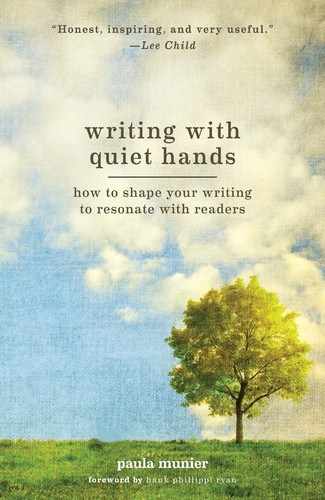Foreword
It’s one of those memories we all can share, if we’re lucky. We’re little kids, and we say to someone who loves us—or who is trying to get us to go to sleep—“Tell me a story.” And if we’re lucky, that person who loves us puts us on their lap, or sits on the bed beside us, and begins to weave a tale. “Once upon a time …” they say, and our real world falls away. No more walls, no more bedroom, no more reality. We enter the world of the story, delighted to go through that reliable and recognizable portal of promise, the magical words “Once upon a time.”
But Grandma or Aunt Sally or Sister Susie hadn’t studied storytelling, or been awarded an MFA, or become a best-selling author. They simply and quietly understood what a story needs: a character, a setting, a problem, a quest, a happy (for some) ending. And as young listeners, we knew what to expect. Here comes the exciting part, we’d think. Here comes the scary part. Even though the storyteller was making it up on the spot.
Because even back then, we knew about stories. The rhythm and poetry and music and life and passion of stories is hard-wired, I’m sure of it.
Time passed, as it always does, and the roads diverged in the yellow woods. And for some of us, the listener became the storyteller. But somehow, instead of joyfully creating a story from experience and imagination, we made it difficult. I’m a writer now, we think. And this had better be good. It has to be good! How do I make it Good? How do I sell it? How do I get on the bestseller list? The magic vanishes. The joy dissipates. And it all seems impossible.
Now my dear Paula Munier is saying the magic words to us another way. Once upon a time, she begins. Once upon a time there was—you. And you wanted to create your unique story, and tell it beautifully, and you got a computer and sharpened your pencils and—then what? Let me tell you a story about your journey, she says, with that smile of hers. With its pitfalls and obstacles, its joys and beauty.
But we’re no longer children, right? Not as eager to listen. Hurry hurry, we demand! Tell me the secret. What is it that you know, Paula, that we don’t? Can’t we just skim this? Can’t we just look at the table of contents and skip to the conclusions? But that is Paula’s secret, and I can reveal it to you right here: The only secret is unlocking the commitment and craft and passion within yourself. And page by page, without you even realizing it, this book will allow it to happen to you. (Go ahead, underline. Highlight. Flap down the corners of your special pages. I won’t tell.)
As the chapters of this lovely book unfold, so will your writing life. Your skills and your surprises, the wonderful words that are just around the next corner. This book will allow you to get there. Peacefully. Simply. On your own. From the inside out.
I know this.
At one point while reading Writing with Quiet Hands, I began to feel … different. I paused, trying to assess. Was I about to cry? What was I noticing? And then I realized—it was peace. I was feeling peace. Paula’s thoughtful, loving, and gently brilliant words were twisting like smoke wisps thought my brain, quieting and calming and infusing me with joy. And confidence.
I have to go write now. And you will want to as well. It’s just that kind of a book.
—Hank Phillippi Ryan
